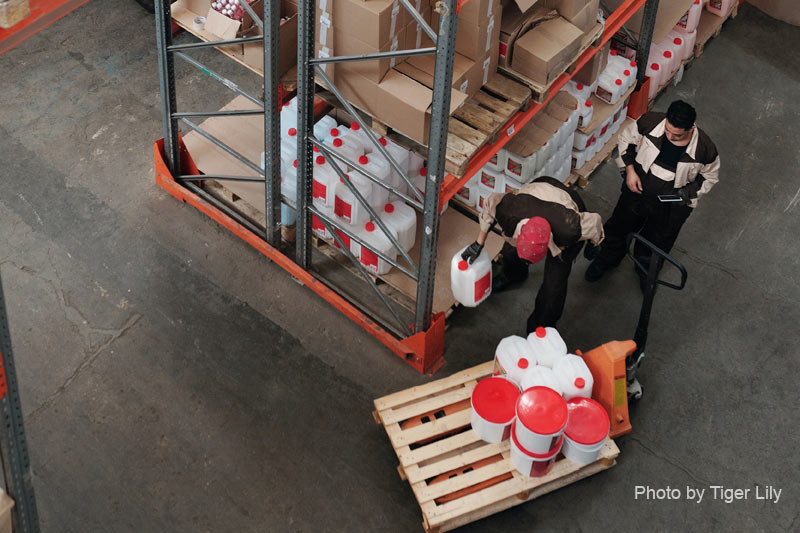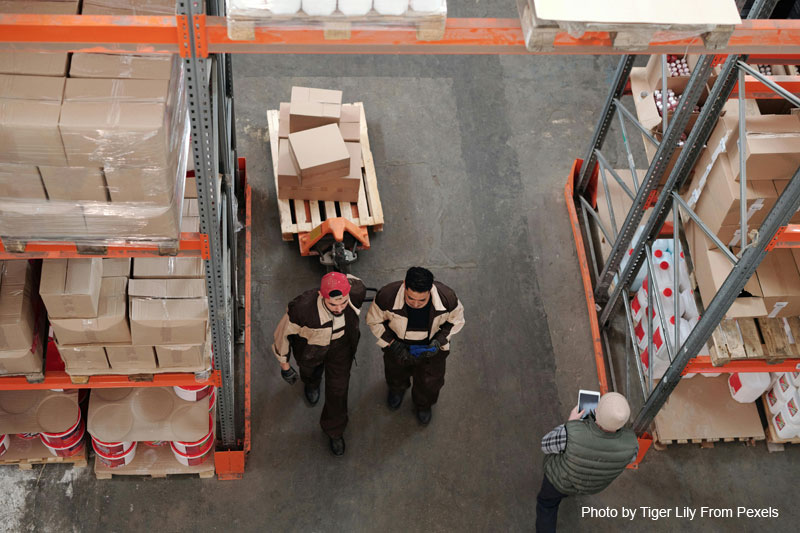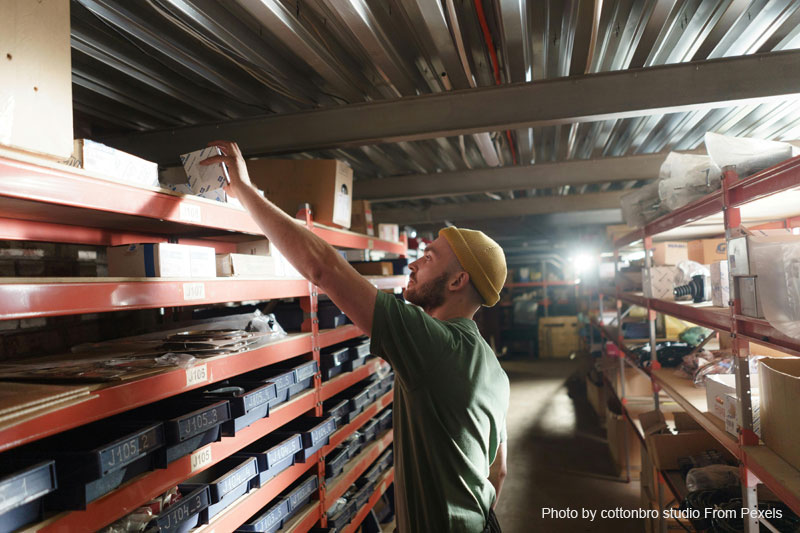Successful e-commerce businesses often have high logistics costs. In many cases, that is just the cost of keeping customers happy. Part of these costs may go to warehousing expenses. These expenses, such as the cost of rent and the price per square foot of storage space, may even be a substantial part of your overall logistics budget. Warehousing expenses may even include long-term commitments like lease agreements.
And while these costs may be high, warehousing provides many benefits and can make e-commerce much easier for sellers. Additionally, warehousing can reduce liability in your supply chain in several ways, such as:
- Warehousing uses automation for greater customer satisfaction. Most warehousing companies have automation technology and AI-based software. This can include automated retrieval systems, automated shipping, modular shelves, and warehouse robotics. This automation can reduce the costs passed on to you while also achieving greater accuracy, minimizing the number of unsatisfied customers you may have.
- Warehousing can provide you with accurate data to make informed decisions. Along with the automation benefits, warehousing technologies often collect tons of data. This data can help you identify inefficiencies, reduce excess expenditure, and improve overall operations. And when you are operating at peak performance, you may have fewer scenarios that introduce risks, such as unsatisfied employees or customers or defective or contaminated products. All of these factors can work together to reduce your liability.
- Warehouses have legal liability for products. Warehousing your inventory means working with a trusted company that you believe can protect your inventory. However, you must also check with any potential warehousing partner to ensure they have legal liability insurance. Legal liability insurance is a special type of insurance that safeguards against inventory loss or damage due to facility maintenance issues or gross negligence on the part of employees. If your inventory is impacted by one of these issues, the warehouse itself is liable for any losses, rather than you. Warehouse legal liability insurance often covers claims related to:
- Product damage due to careless handling or storage
- Inventory damage due to negligent climate control
- Destruction due to insufficient facility maintenance
- Property damage caused by employees smoking in a non-smoking area.
And while these scenarios may not cover all of the potential instances where warehouse legal liability insurance may cover losses, they can give you a good idea of how it can reduce your liability. Before entering into any agreement, it’s worth requesting a copy of the company’s legal liability insurance certificate.
- You may get additional insurance while warehousing inventory. For many e-commerce businesses, inventory is out of sight, but that doesn’t mean it’s not on one’s mind. In addition to checking for legal liability insurance for the warehouse, you can also purchase your own comprehensive insurance policy. These policies may cover a variety of scenarios that aren’t covered by the warehouse’s policy, which can further minimize your liability.
- Warehouses assume many risks, which prevent you from assuming them. Warehousing is not only cost-effective, but it also ensures that many businesses can function and be profitable with a very lean staff. Without warehousing services, each company would have to store inventory and take care of all shipping concerns, which can require additional staff. And with additional staff comes additional liability risks. Warehouses frequently have safety measures in place to keep all employees safe as required by OSHA. These include measures such as:
- Proper ergonomics to protect employees from strain while working
- Proper personal protective equipment (PPE)
- Safe storing spaces for hazardous materials or items that require special conditions
- Properly trained forklift operators to handle heavy items or pallets
- Loading dock safety policies
- Conveyor belt safety policies
- Routine maintenance schedules to prevent malfunction of equipment
- General safety tips on staying safe when working with different materials
When you partner with a warehousing company, you don’t assume the risks of having a large staff, but you can still get the benefits of efficiency and expediency. This aspect of warehousing is another way to reduce liability in your supply chain.
In addition to reducing your supply chain liability, warehousing can create value for your company and help you operate more efficiently. Partnering with a premier warehousing provider can be one of your company’s best moves. These companies can handle high volumes of products with shocking accuracy using a well-managed system of technology and oversight. Contact Dawson Logistics today to learn more about the benefits of warehousing.


